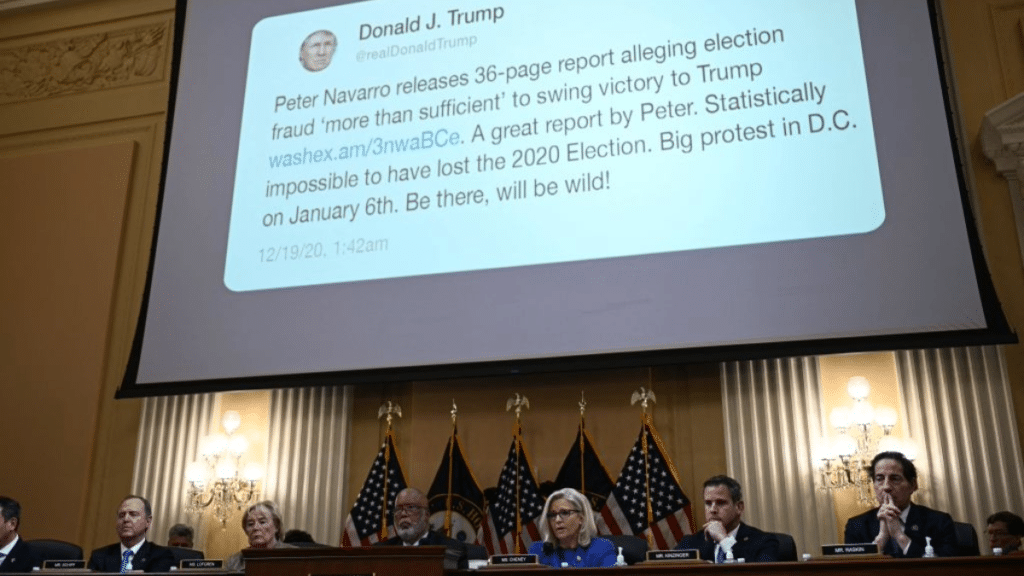As Twitter Fades, So Does Threat of Trump's Use of It
Anika Collier Navaroli / Sep 5, 2023Anika Collier Navaroli is currently a Senior Fellow at the Tow Center for Digital Journalism at Columbia University.

Former President Donald Trump is back to posting on X- the platform that used to be known as Twitter.
As the person who made the argument inside Twitter for Trump to be deplatformed, the possibility that he would return to the platform used to haunt me. Now, I find the circumstances of his return in the current cultural and political context much different than I previously imagined.
Like most Americans, it wasn’t too long ago that much of my attention to political news was dictated by what Trump tweeted. Unlike most Americans, it was my job to analyze Trump’s tweets against Twitter’s rules and make recommendations to company executives about what to do with them.
Sometimes they listened, sometimes they didn’t.
The last time I was asked to review Trump’s tweets was on January 8, 2021. That day, he emerged from a temporary suspension following the violence at the US Capitol on January 6, which he instigated using Twitter. Once back on the platform, Trump notoriously continued his prior rhetoric, glorifying the political violence that occurred and announcing he would not attend the inauguration of President Joe Biden.
From my vantage, it was clear the nation was again on the verge of unrest. Hoping to stave it off, I first authored a written policy recommendation and made the oral argument inside the company for Trump to be permanently suspended from Twitter. That time, executives listened and agreed.
However, I’ve worked in policy long enough to know that nothing is permanent. Policies are merely tools used by those in power. Like any tool, they can build or bludgeon. And when regimes change, so do the policies they put in place.
So even after being at the center of the biggest social media content moderation decision in history, I knew it wouldn’t last, especially when Elon Musk bought the company. Yet, that knowledge didn’t stop the sheer panic I felt the night Trump’s account was reinstated to Twitter.
Not even a year ago I was in the midst of blowing the whistle about what I’d seen at Twitter. I was warning Congress that without regulation of social media companies, the 2024 election could descend into chaos and violence. I was also writing about how returning Trump to his social media megaphones was dangerous for our democracy. I continue to stand by these arguments.
And, even I couldn’t have predicted the environment into which Trump now returns to the platform formerly known as Twitter. Despite feeling the déjà vu of a monumental election season gearing up for a Biden v. Trump battle, Trump finally posting on Musk’s platform worries me less than it used to, for three reasons.
First, Twitter as we knew it no longer exists. Having literally been renamed to X, the platform has fundamentally changed. It no longer captures the attention and hearts of its once most powerful users. With all its changes, X just doesn’t hold the same appeal its predecessor did, and it has lost its claim to being the digital public square.
I think this means X will play a more diminished role in the next US election than it did in the last. There’s evidence that text-based social media writ large is losing its cultural and political stronghold. I believe video sites like YouTube, TikTok and Twitch will prove more crucial to public opinion and play a more significant role with regard to disinformation and potential interference in this upcoming election.
Second, there’s a new ring leader in town. Twitter was once Trump’s circus. Now, Elon oversees the show. “Elon says” on X has become its own genre of reporting in much the same way “Trump tweeted” used to dominate our information ecosystem. As much as Tucker Carlson’s team may have been able to coax Trump back for now, billionaire narcissists don’t play well together.
I suspect Trump will choose not to engage with The Elon Show in the same way he once used Twitter. I don’t think he wants that fight for airtime. I predict he will continue to stick to his own platform– Truth Social– for his more personal musings, and use X strategically for his re-election campaign.
Third, while Trump faces nearly 100 charges in four criminal cases, he has yet to suffer legal consequences for inciting the violence of January 6th. Rather, his followers have faced the real life repercussions for his words. For participating in an insurrection at Trump’s urging, more than 1000 people have been arrested on countless criminal charges, with key figures sentenced to nearly two decades in prison.
It would appear that this has created a chilling effect. Even as Trump has attempted to use inflammatory rhetoric in the face of his indictments, right-wing influencers have encouraged people not to engage in protests. I think this means many within Trump’s base are no longer willing to risk their lives and freedom over his incoherent posts.
None of this means I think we are out of the woods, nor does it mean social media reforms are unnecessary. Despite my caveats, I’m still worried about the damage the combination of X and Trump can do to democracy. The fact that we are already in the midst of presidential debate season and the company is just beginning to hire its election lead and civic integrity team is a major cause for concern.
Trump remains one of the greatest manipulators of mass media in history. From tabloids to cable news, and from reality TV to social media, Trump has been able to skillfully craft his image through each emerging technology. With his ability for masterful reinvention, it would be foolish to write the danger off completely. There is still a significant chance his supporters will commit violent acts.
But I also know that we are in a different world with a different information landscape than when Trump last tweeted on January 8, 2021. Because of those changes, the toxic combination of Twitter and Trump will never be what it once was. For that, I am grateful.
Authors
